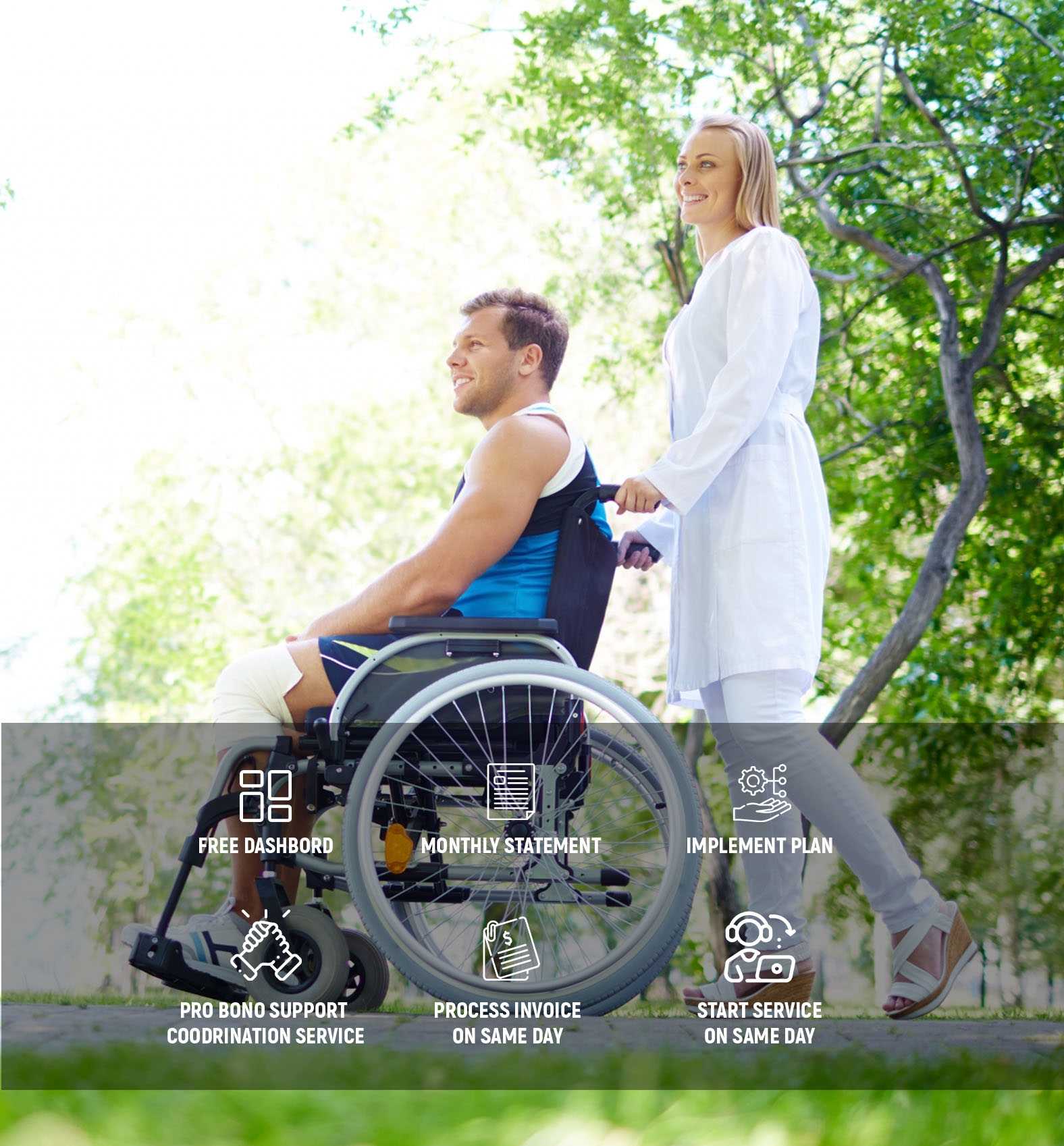A plan review is a chance for you and the NDIS to check back in with each other and determine what’s working and what’s not. It’s a great chance to make some updates to your plan and look at how your NDIS journey is progressing.
Here are a few tips and bits of information for you to consider when your following plan review is coming up.
What happens when my plan ends?
The NDIA automatically extends plans once they reach their end dates to ensure participants do not suffer any disruptions to their services and supports during Covid-19. This means that if you have not yet been through the process of renewing your plan, your existing plan will be extended for another 12 months automatically.
The automatic extension coincides with the timeframes of your existing plan. For example, if your existing plan is only for eight months, it will be automatically extended for another eight months at its end date.
The automatic renewal also works for your funding. Your existing NDIS funding under your current plan will continue until a formal plan review can take place.
The NDIS will contactyou to schedule your plan review.

Who needs a plan review?
In what scenarios will someone need a full plan review?
People who have had a major or significant change in their circumstances will need a comprehensive, full plan review. A major change in circumstances could be:
- If there has been a change in your disability and you require support
- If you have changed your living circumstances; moved out independently or have had a family member move in
- That you have progressed into the workforce or finished your studying
- If a child is younger than seven, because their needs, supports or goals are constantly changing
In what scenarios will participants be able to retain the same supports in a new care plan?
- If you are happy with the progression of your plan and that the supports, you are currently using are helping reach your goals.
- If there has been no major changes to your life, disability or needs.
- IF over the next plan cycle you believe there will not be any changes in your living, work, or study situation.
Children Younger than Seven
A full plan review for children younger than seven is common practice for early childhood early intervention (ECEI). The goal of ECEI is to ensure the NDIS can provide the best support to every child with development issues. Having a full plan review annually ensures that the child’s progression is monitored and updated in detail every year.
In the months leading up to the end of a child’s plan, you can expect a call from the NDIA to discuss how the plan has been progressing and to set a time to have a plan review meeting.
It’s good practice to prepare for this phone call and talk to a child’s supports beforehand to try and gain a solid understanding of your child’s situation and progression.
The NDIA has an early childhood provider report form available to download at.
This form can help parents and guardians get a picture of the support services, how they’re progressing and gain future recommendations.
What is plan review-participant check-in?

You can expect a call from the NDIS around six weeks from the scheduled end of your plan. As part of this call, you’ll be asked to schedule a plan review meeting and asked about how your current plan has been working out.
It helps if you have been expecting this call and have an idea of what is working in your plan and what isn’t. This information will help the NDIS tailor your plan review meeting to your personal needs and give them an overview of what you might be unhappy or happy with.
You can request to have your plan review conducted over the phone, face-to-face, or via video link. Depending on your circumstances, you likely won’t need a full plan review, and the meeting won’t be as extensive as your initial planning meeting.
Types of reviews
Everyone is different, and the NDIS realises that not everyone will need a full review after their plan has ended. That’s why there are three types of reviews depending on how much a participant’s circumstances have changed.
1) The same supports under a new plan
If you find that your circumstances haven’t changed after the course of your plan, you won’t need to undertake an extensive plan review. This is more of a check-in with the NDIS, and you will find that you don’t need to make any changes.
2) Minor changes to your supports and a new plan
It is quite natural that throughout your plan, you find things that you can easily tweak. This is common, and it does help to make changes that you feel comfortable with and that you believe will make an impact on your life. Making changes to how you manage your funds or advancing through some long-term goals may mean your support structure changes somewhat.
3) Full Plan Review.
A complete plan review is very similar to the first-ever planning meeting with the NDIS. This type of review is needed when your circumstances have dramatically changed, and you need to reassess the role the NDIS plays in your life. Significant changes in circumstances might mean that you’ve changed jobs, moved states, family situation or your disability has improved or deteriorated significantly. It’s also common for children under seven to have a complete plan review every year as their circumstances are more likely to change rapidly.
Plan Review Meeting
- Any changes in your living arrangements
- How your goals have been progressing
- Reviewing your budget and spending
- Talking about the different services and supports you have been receiving
- How your plan is currently managed
- If you would like to change or update your goals

Preparing for your plan review meeting

A plan review meeting might seem a little intimidating at first, but it’s quite simple. It’s the NDIS’s way of ensuring that your plan is relevant to your day-to-day life, has been efficient in helping you reach your goals and ensures you are receiving enough funding.
No matter what type of plan review meeting you are walking into, the most important thing is that you are aware of what was working and not working in your final plan and have prepared any documentation that you may need.
Here are some strategies which may help you to prepare for your plan review meeting
Keep track of dates and documents
The best way to get prepared for your meeting is to be aware of the end date of your plan. Knowing when your old plan is ending will give you time to gather any documentation you need and reflect on the time that’s gone by.
Try and get all your documentation from your service and support providers. This documentation includes reports, receipts and contracts you might have.
Assess your goals
Before your plan meeting, it is also important to assess your NDIS goals. Do you feel like you are making progress? If not, why not? And in what ways do you think you could be better supported to reach them? During the planning review meeting, your goals will definitely come up, so it’s best to put some thought into it beforehand.
Organise to have someone come with you.
It’s your right to have someone present for your planning review meeting. This person can be a friend, family member or primary guardian. They can also be interpreters and other people that may be able to assist in your communication.
Think about changing how your plan is managed
A plan review meeting is a perfect time to change the way your plan is managed. Under the NDIS, a participant has three options to manage their plans; self-managed, NDIA managed, and plan managed. A self-managed plan means that you or a trusted guardian oversees your funding and how it is spent. While if you ask the NDIA to manage your plan, your funds will be handled by the government. A plan manager is an independent third party who oversees participants funds and can bring an objective set of eyes to your NDIS plan.
What is the difference between an NDIS planning meeting and a plan review meeting?
An NDIS planning meeting is the meeting that takes place when you first sign up with the NDIS. In the initial meeting, you will need to provide all types of information about yourself, your disability, and your living arrangements. This information will need to be supported by documentation, such as ID, doctors reports, service agreements and any official documents related to your situation.
It’s also in this meeting where you’ll first get to know your Local Area Coordinator (LAC) and your NDIA planner. You’ll work with them to create your NDIS plan, outline your goals, establish supports and services and determine how you manage your funds.
The first meeting is crucial as it sets up your relationship with the NDIS and is the baseline for receiving funding and support.

A plan review meeting is similar but not as extensive as a planning meeting. Because the NDIS already has to know you and your situation, you don’t need to provide as much documentation about yourself and your condition. However, you will need to provide documentation about your NDIS plan and how much progress you’ve made on your goals. Depending on how much your circumstances have changed or how you’re progressing will determine how extensive your plan review meeting will be.
It is quite natural that throughout your plan, you find things that you can easily tweak. This is common, and it does help to make changes that you feel comfortable with and that you believe will make an impact on your life. Making changes to how you manage your funds or advancing through some long-term goals may mean your support structure changes somewhat.

